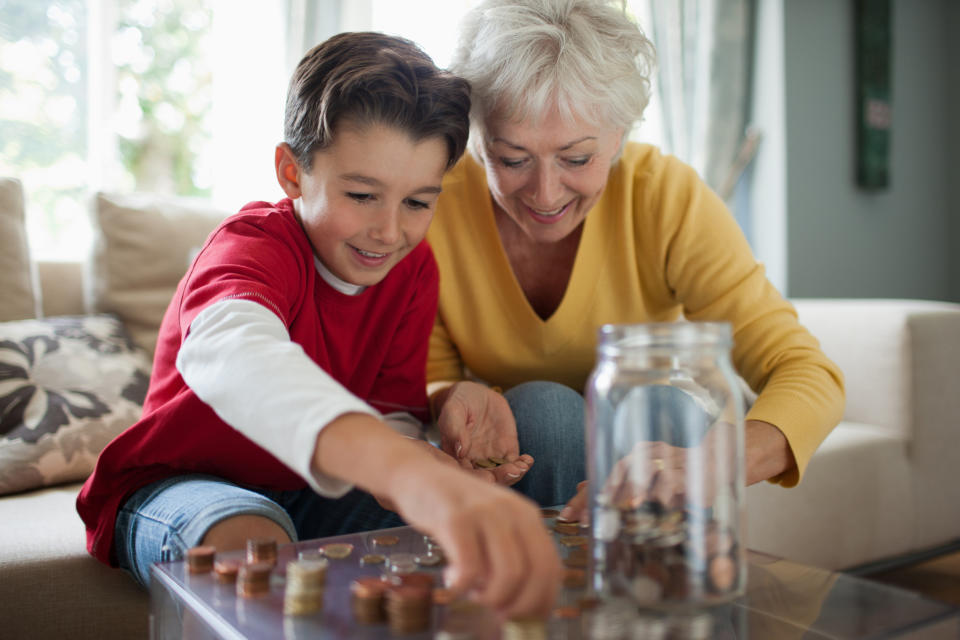‘Oldie but goldie’ money advice for dealing with Covid-19

When 42-year old Jennifer Elliot was growing up, the tucker box freezer was full to the brim of cold chooks, veggies and other precooked goods.
That was 30 years ago at a time when Australia famously had its last recession that it “had to have” according to former Prime Minister Paul Keating.
But as the world grapples with the coronavirus outbreak, suddenly it’s the things that many of us recall from our parents, grandparents and even great grandparents that now make sense and are helping us manage our way through a looming financial crisis.
Ten oldie but goldie money saving ideas from decades ago are now helping people today.
Here’s what they are:
Marking up the specials in paper shopping catalogues, or adding to online carts
Making the most of eat-in dinner leftovers to stretch your grocery shop
Using your domestic skills to sew and repair clothes or shoes
Growing your own vegetable or fruit garden
Reducing water and electricity wastage to help keep bills low
Avoiding credit card debt like the plague
Saving things to reuse such as aluminium foil, grocery bags and wrapping paper
Using vinegar and bi-carb soda for household cleaning
Using newspaper to clean the house windows and mirrors
Keeping old clothes and linen as rags for cleaning
Indeed, I remember my great grandmother, who grew up during the Great Depression, always reusing tea bags – at four times – even when there were plenty in the box, to help stretch the household pennies and reduce waste at the same time.
Others, like Ms Elliot, remember kitchen cupboards stocked full of canned food and a freezer box where the bottom was never visible.
“We grew up with our whole family, grandparents, parents and relatives, all having a tucker box freezer as a normal household item.
“It was always stocked with plenty of meat, vegetables and batch cooked goods. I have been doing this as a standard part of home food storage and cooking from when I left home,” she said.
Social media is also full of oldie but goodie ideas to save money.
Belinda White: “My grandparents will never replace anything that can be fixed. It's part of a broader mindset of thrift.”
Sonja Hundloe: “My grandparents also had a freezer box and it was always full. They used to buy meat in bulk. They also grew some of their own fruit & veg and had a couple of chickens for eggs. “
Alanna Bastin-Byrne, director at Femeconomy recalls a time when her Nana would scour the food shopping catalogues for specials and circle whatever she planned to buy in bulk.
“She did this because she had seven kids, but also because of her experience with not having a lot of money during the depression and wanting to feed anyone who came to her door.
“I also learnt from Nana to never waste food. On average Australian households throw one in five shopping bags in the bin. Having a mindset of no wastage definitely inspires kitchen creativity, is better for the environment and your finances.”
As Australia’s jobless rate edged higher to 5.2 per cent in March and is expected to worsen in response to the Federal Government’s Coronavirus measures, an economic recession is looming.
Many people are facing financial hardship and appear to have little to fall back on.
A new survey found estimates that as many as 4.2 million Australians were already living pay check to pay check before the coronavirus hit.
The research by consumer platform Money.com.au found that nearly a third of employed Australians are either in credit or have under $100 left in their pocket, after paying all their essentials such as rent, bills and groceries each month.
Bianca Hartge-Hazelman is the founder of the Financy Women’s Index and specialises in writing on women’s money matters for Financy and Yahoo Finance.
Make your money work with Yahoo Finance’s daily newsletter. Sign up here and stay on top of the latest money, news and tech news.
Follow Yahoo Finance Australia on Facebook, Twitter, Instagram and LinkedIn.

 Yahoo Finance
Yahoo Finance 